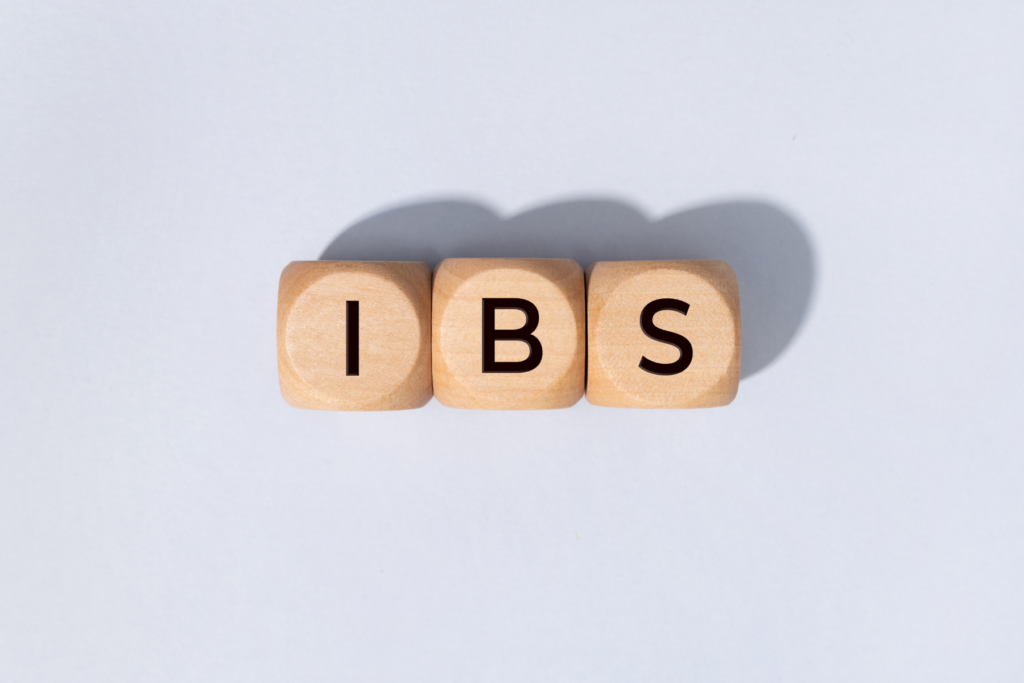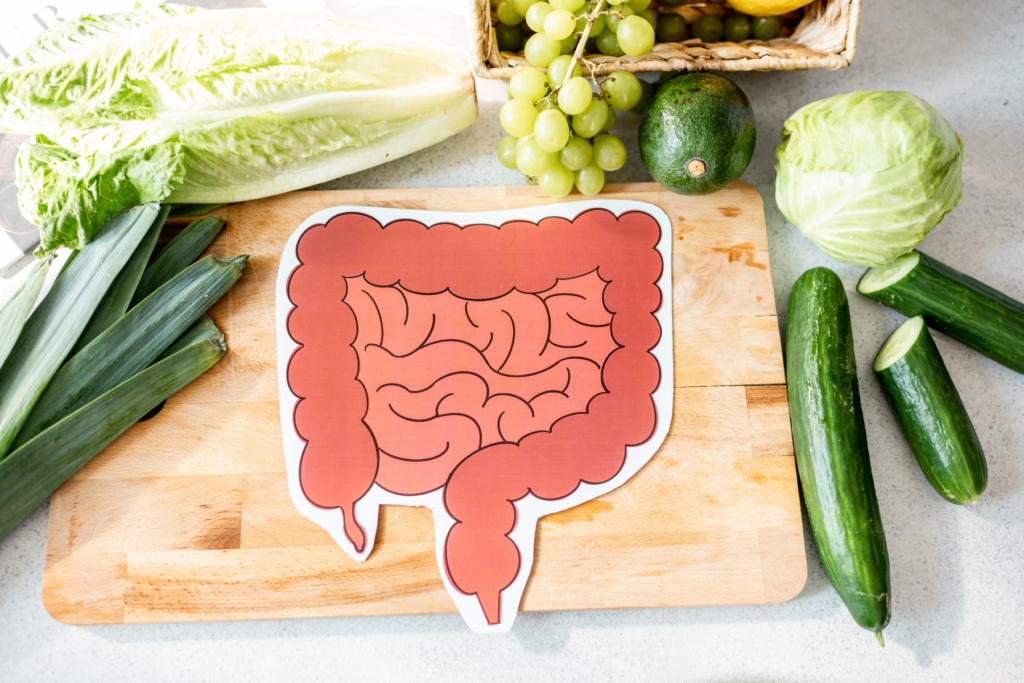Can Underfueling Cause IBS?
April 19, 2022

IBS, or irritable bowel syndrome, is a chronic gastrointestinal disorder that affects one in seven people. This syndrome tends to be more prevalent among women than men and can be connected to disordered eating and eating disorders.
As April is IBS awareness month, we want to add evidenced based information to the discussion. Let’s talk about what IBS is and how it could be connected to our eating habits.
What is Irritable Bowel Syndrome?
IBS is a condition that involves the intestines. In IBS, people experience stomach pain and a change in their bowel habits, often in times of stress or after eating certain foods.
IBS presents as one of three subtypes: IBS with constipation (IBS-C), IBS with diarrhea (IBS-D), or IBS with a mix of diarrhea and constipation (IBS-M).
This condition is not the same as getting a funny stomach after hitting the buffet.
Symptoms of Irritable Bowel Syndrome
People that suffer from IBS may experience the following common symptoms:
-Constipation (with IBS-C)
-Diarrhea (with IBS-D)
-Alternating between constipation and diarrhea (with IBS-M)
-Extreme urgency to use the washroom
-Abdominal pain
–Bloating and abdominal distension
-Fatigue
-Worsening of symptoms with stress or eating certain foods

What is the Cause?
We don’t really know what causes IBS. However, there are several factors that are thought to play a role:
Low Energy Availability
In addition to affecting periods, bone health, immunity, and performance, underfueling can cause IBS symptoms as well. Low energy availability can wreak havoc on your gut. Undereating puts a lot of stress on the body as it tries to continue to function optimally without enough energy to do so. This stress can result in inflammation in addition to an imbalance of the healthy bacteria that live in your gut.
Gut Motility
People with IBS may have a more sensitive gut. When food is digested and fermented in the colon, gas is produced causing the intestines stretch. In people with a sensitive gut this stretching sends pain signals to the brain. In turn, the brain sends signals to the gut to speed up or slow down digestion causing diarrhea or constipation.
Other people with IBS may just have weak muscles lining their digestive tract. When these muscles that are essential for moving food through our intestines are affected, food can take longer to move through the system causing constipation and bloating.
Infections and Gut Bacteria
Some people develop IBS symptoms after having a viral or bacterial gut infection or after having a parasite.
In addition, the healthy bacteria that lives in your gut may cause IBS as well. Having a large and diverse population of gut bacteria is important for health and digestion. However, if the population gets out of control, issues can arise.
Stress and Mental Health
Mental health and the connection between our minds and our guts (the gut-brain axis) may also play a role in the development of IBS. Many people with this syndrome experience anxiety and/or depression and find that their symptoms worsen or flare up with stress.
Eating Disorders and IBS
It is not uncommon for those who have experienced eating disorders or disordered eating to experience digestive distress.
As we mentioned, underfueling and/or excessive exercise, as in low energy availability, may trigger IBS symptoms as the body is under a lot of stress. In addition, research shows that restrictive diets may result in digestive distress too. When foods are cut out of the diet for a long period of time, a person can develop intolerances as their gut bacteria and digestive enzymes are altered.
On the flip side, conditions like IBS have been shown to lead to disordered eating behaviours as well. These behaviours emerge as people with IBS attempt to avoid the uncomfortable symptoms that often occur after eating. Some people may start to skip meals, eat less, and follow highly restrictive diets.
Diagnosing Irritable Bowel Syndrome
A person’s experience with IBS can be vastly different than someone else’s. In addition, symptoms can mimic those of many other conditions making diagnoses challenging.
There is no specific test to identify IBS. Instead, it is a matter of looking at a person’s symptoms and ruling out any other potential causes. Doctors may use a colonoscopy, x-ray, CT scan, allergy tests, and/or stool tests to help rule out other conditions.
For IBS diagnosis, a person must have: abdominal pain for one day/week for at least three months. In addition, they must have two or more of the following:
-Pain and discomfort that is related to bowel habits
-A change in how often they have bowel movements
-A change in the consistency of bowel movements

What is the Treatment?
IBS treatment is all about symptom management. Medications may be prescribed to change how slowly or quickly food moves through the gut. This can help to treat constipation or diarrhea, depending on a person’s symptoms.
Another treatment for IBS involves therapy. Many people find that their IBS symptoms flare up when they are experiencing a lot of stress or anxiety. In this case, tools to help manage mental health can help to relieve IBS symptoms as well.
Some people find that eating certain foods trigger their IBS symptoms. Thus, dietitians can also can play a role in treatment. Typically, dietitians will help a patient follow a therapeutic diet called the low FODMAP diet to determine which foods may be triggering symptoms.
Low FODMAP Diet
FODMAP stands for fermentable oligosaccharides, disaccharides, monosaccharides, and polyols. These fancy words refer to types of sugars in foods that are hard for our bodies to digest. These sugars end up in out large intestines where they are fermented by bacteria to produce gas. Foods with these types of sugars can be common IBS triggers.
The low FODMAP diet eliminates these sugars from the diet for a short period of time. Then, these foods are reintroduced one at a time. At the end of this short-term elimination diet, a person may know which foods make their IBS symptoms worse. The idea is to then to be more mindful about how often and how much a person eats these foods to better manage their symptoms.
It is important to note that the low FODMAP diet is a short-term therapeutic diet. It is complicated to follow and is highly restrictive. Thus, it should never be attempted without the support and guidance of a registered dietitian.
From an outside view, IBS may not seem like that big of a deal. However, this syndrome can greatly impact a person’s quality of life and confidence. Interestingly, IBS can be highly connected to eating disorders and disordered eating both as a result and a cause.
Looking for support from a registered dietitian? Check out our services to connect with a non-diet dietitian today!
[…] -Irritable bowel syndrome […]
[…] -Stomach and digestive issues (read more on how under eating can lead to IBS here) […]